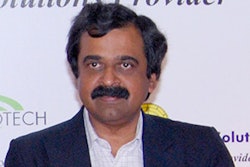Addresses need to meet Wal-Mart's RFID compliance requirements for Class 2 pharmaceuticals
Marlton, NJ — June 3, 2004 — Ranbaxy Pharmaceuticals Inc., a wholly owned subsidiary of Ranbaxy Laboratories Limited, India's largest pharmaceutical company, said it has chosen supply chain and business process automation solutions provider Acsis to implement a radio frequency identification (RFID) tracking system to meet Wal-Mart's RFID mandate for its Class 2 pharmaceutical suppliers.
Taking effect June 2004, Wal-Mart is requesting that its pharmacy suppliers employ RFID technology to Class 2 prescription drugs, defined as addictive painkillers and other prescription narcotics. In February 2004, the Food and Drug Administration (FDA) issued a report on "Combating Counterfeit Drugs," in which it highlighted RFID tagging as appearing to be "the most promising approach to reliable product tracking and tracing."
Acsis explained that it will provide for the full implementation of an RFID tracking system for Ranbaxy. First, Acsis said it will employ its RFID Expert System as a diagnostic troubleshooting tool and conduct an analysis of product and labeling attributes for Ranbaxy's pharmaceuticals and provide technology recommendations.
Next, the provider said it will facilitate the necessary hardware and software integration, including implementing reader and smart-label equipment, through its network of RFID hardware and software partners.
"Acsis' history with RFID implementations and pharmaceutical industry domain expertise surpassed competitive offerings and made the company the only choice to help us quickly comply with Wal-Mart's RFID tracking initiatives for Class 2 drugs," commented Kevin Lindholm, manager, Ranbaxy.
Suneet Walia, executive director IS, Ranbaxy, added that Acsis is an integral part of the pharmaceutical company's strategy not only to comply with the requirements of trading partners and regulatory bodies, but also to leverage RFID for business benefits.
"Although Ranbaxy is new to RFID, Acsis' offering gives us the confidence of knowing that our system will be implemented the right way the first time, without committing additional unplanned resources to the project," Walia said.











